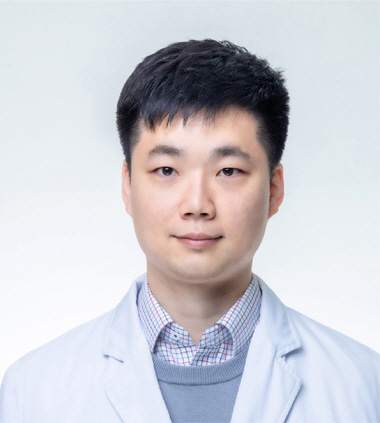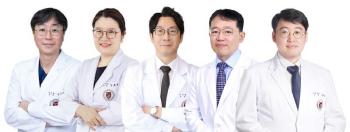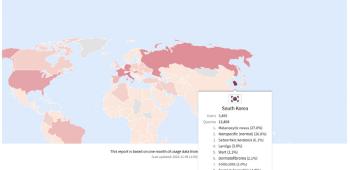Professor Kim Min-seung of Hallym University Dongtan Sacred Heart Hospital won the first Professor Lee Myung-sik Award of the Korean Parkinson's Disease Association
Apr 21, 2025
Professor Kim Min-seung of the Department of Neurology at Hallym University Dongtan Sacred Heart Hospital won the first Professor Lee Myung-sik Award at the '2025 Korean Society of Parkinson's Disease and Abnormal Motor Diseases (KMDS) Spring Conference' held at the Grand Hotel in Switzerland from April 11 to 12.
The Lee Myung-sik Professor Award was first established this year to honor the achievements of the late Professor Lee Myung-sik, who served as the first president of the Korean Parkinson's Disease Association, and to inspire academic development and enthusiasm for research. Among the papers in the field of abnormal motor disease published during the year, the Impact Factor is awarded to one main author who wrote the original paper in the highest journal.
Professor Kim Min-seung was honored for his research on the role of dual-phase nuclear medicine for early diagnosis of cortical basal nuclear syndrome (The Role of Dual-Phase 18F-FP-CIT PET to Early Diagnosis of Corticobasal Syndrome, corresponding author Professor Yoon Jeong-han of Department of Neurology at Ajou University Hospital). The paper was published in the February 2024 issue of the SCIE-level international journal 『Clinical Nuclear Medicine』.
In this study, Professor Kim demonstrated through quantitative analysis that idiopathic Parkinson's disease and 'Cortical Basal Nuclear Syndrome' can be distinguished early through a double-phase nuclear medical examination (positron tomography imaging) that simultaneously photographs cerebral blood flow and dopamine receptors. 'Cortical Basal Nucleosis Syndrome' is a type of atypical Parkinson's disease that shows clinical symptoms similar to Parkinson's disease in the early stages, making it difficult to differentiate.
Professor Kim Min-seung said "The importance of early discrimination has been increasingly emphasized due to recent advances in Parkinson's disease treatment such as deep brain stimulation."We hope that this study will help early treatment of Parkinson's disease, and we will continue to conduct continuous research on the prevention and treatment of Parkinson's disease, a representative neurodegenerative disease."."
The Lee Myung-sik Professor Award was first established this year to honor the achievements of the late Professor Lee Myung-sik, who served as the first president of the Korean Parkinson's Disease Association, and to inspire academic development and enthusiasm for research. Among the papers in the field of abnormal motor disease published during the year, the Impact Factor is awarded to one main author who wrote the original paper in the highest journal.
Professor Kim Min-seung was honored for his research on the role of dual-phase nuclear medicine for early diagnosis of cortical basal nuclear syndrome (The Role of Dual-Phase 18F-FP-CIT PET to Early Diagnosis of Corticobasal Syndrome, corresponding author Professor Yoon Jeong-han of Department of Neurology at Ajou University Hospital). The paper was published in the February 2024 issue of the SCIE-level international journal 『Clinical Nuclear Medicine』.
In this study, Professor Kim demonstrated through quantitative analysis that idiopathic Parkinson's disease and 'Cortical Basal Nuclear Syndrome' can be distinguished early through a double-phase nuclear medical examination (positron tomography imaging) that simultaneously photographs cerebral blood flow and dopamine receptors. 'Cortical Basal Nucleosis Syndrome' is a type of atypical Parkinson's disease that shows clinical symptoms similar to Parkinson's disease in the early stages, making it difficult to differentiate.
Professor Kim Min-seung said "The importance of early discrimination has been increasingly emphasized due to recent advances in Parkinson's disease treatment such as deep brain stimulation."We hope that this study will help early treatment of Parkinson's disease, and we will continue to conduct continuous research on the prevention and treatment of Parkinson's disease, a representative neurodegenerative disease."."
|
This article was translated by Naver AI translator.














